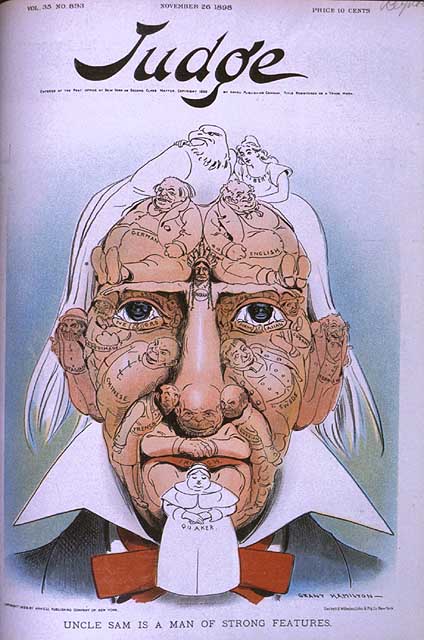1. The technique that Danticat uses to write the story is using different narrators to tell their separate piece that eventually unfolds at the end. On page 125, Beatrice says "Everything happens when its meant to happen." This is a quote that implies destiny. Does this quote apply to the book as a whole? Do things in the book happen when they are "meant" to happen? If so, which events within the unfolding of the character's lives seem like fate?
2. Do you think the portrayal of the characters, particularly the seamtress, living with terror and having it never go away is the case with all of the immigrants who have experienced this?
3. Aline thinks that she "had never imagined that people like Beatice existed, men and women whose tremendous agonies filled every blank space in their lives" (137). Is the way that Aline thinks of these men and women in this passage similar to how Danticat raises up the other characters in the novel?
4. Beatice, the seamtress, tries to reinvent herself by forgetting her haunting past. Do you think she is successful in doing so or has she failed?
5. Do you think that most of the characters unconsciously or voluntarily create a tiny piece from Haiti to incorporate into their lives in America?
6. Why does Beatrice live close to the prison guard knowing that he tortured her back in Haiti? How does Beatrice's experience add to the novel?

2. First of all, I don't think the seamstress was living in such a terror. She wasn't comfortable and didn't enjoy living next to a person that made her suffer and feel pain, but if it's such a huge problem for her she would probably find herself another job to not give "all the girls her address and phone number" or she would move to another city or state. I think the person who struggles most in this book is "barber-prisoner". He is the one who was afraid all the time living in America that someone will recognize him and report about him. He made his whole family struggle too, avoiding having friends and guests to their house, lying about his exact place of birth and name all the time. Those people in the book that suffered because of him years ago, had a new life in America, with new government and peaceful environment.
ReplyDeleteI think the discussion went well. I actually wrote these questions before having a long conversation with my father about the true history of the torturers in Haiti. After having that chat with him, I found out that some of these torturers actually lived in my basement a couple of years ago. Professor Davis was shocked when I mentioned that in class, and I was just as shocked the first time I found this out from my dad. My father mentioned that when his former tenants first came from Haiti to live in America, they lived in "hiding" because they were afraid that the people aware of what they did back home would kill them. They were especially afraid to go on Nostrand Avenue, which was interesting because that's where the prison guard's shop was. From that point, I realized how much Danticat was relating her book to the true life of the torturers and victims.
ReplyDeleteWith this said, after hearing all of the information that my dad has told me, I had a different response in regards to the questions that I wrote. At first, I sympathized with the victims of the torturers, but after I started to sympathize with the torturers. As Marianna mentioned, the victims had a new life in America so they were no longer "tortured". But it was the prison-guard who continued to feel tortured. After all, back in Haiti, these prison guards maybe did what they did in order to not be condemned by the harsh government that was placed at the time.
After this discussion, I think the students were more informed about what really happened in Haiti, and were able to sympathize more with the prison guard.